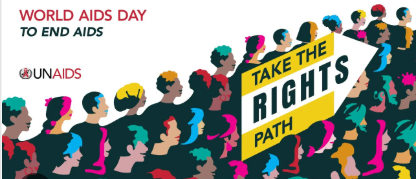The world can end AIDS – if everyone’s rights are protected. With human rights at the centre and communities in the lead, the world can end AIDS as a public health threat by 2030.
On 1 December, this year, the World Health Organisation (WHO) joined partners and communities to commemorate World AIDS Day 2024. Under the theme, Take the rights path: My health, my right! WHO called on global leaders and citizens to champion the right to health by addressing inequalities hindering progress in ending AIDS.
In 2023, an estimated 39.9 million people were living with HIV globally. Approximately 630 000 people died from HIV‑related causes in 2023 with an estimated 1.3 million new HIV infections in 2023.
How South Africa commemorated 2024 AIDS Day.
Health is a human right
Everyone should have access to the health services they need, including HIV prevention, treatment and care services when and where they need them. Protecting rights means ensuring that healthcare is available to everyone, without any discrimination, regardless of their HIV status, background, gender, or where they live.
Prevention empowers and protects
Empowering individuals with access to HIV prevention tools, education, and services protects not only their health but also their rights. Equal access to prevention is essential to stopping new infections.
Address stigma and discrimination
Stigma and discrimination undermine the fight against AIDS. Protecting human rights is essential to achieving universal HIV care and breaking down barriers to access.
The first World AIDS Day took place in 1988, providing a platform to raise awareness about HIV and AIDS and remember those affected by the epidemic.
World AIDS Day is also a day to:
- Show support for people living with HIV
- Unite people in the fight against HIV and AIDS
- Bridge new and effective programmes and policies across different sectors around HIV/AIDS.







